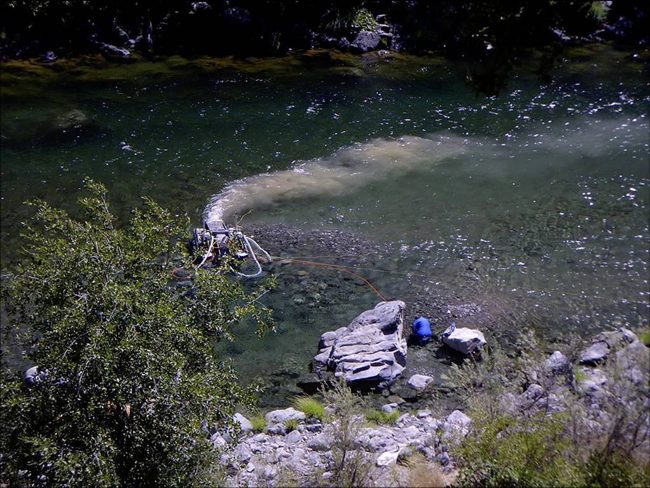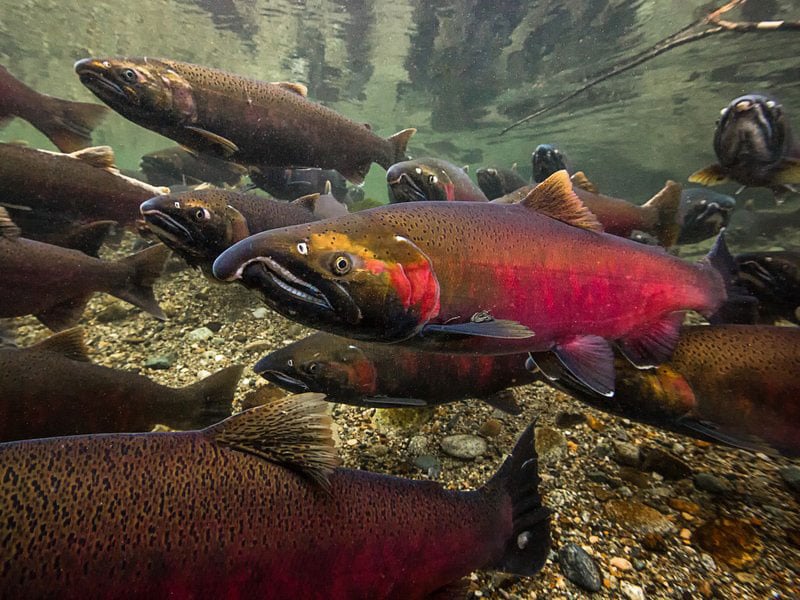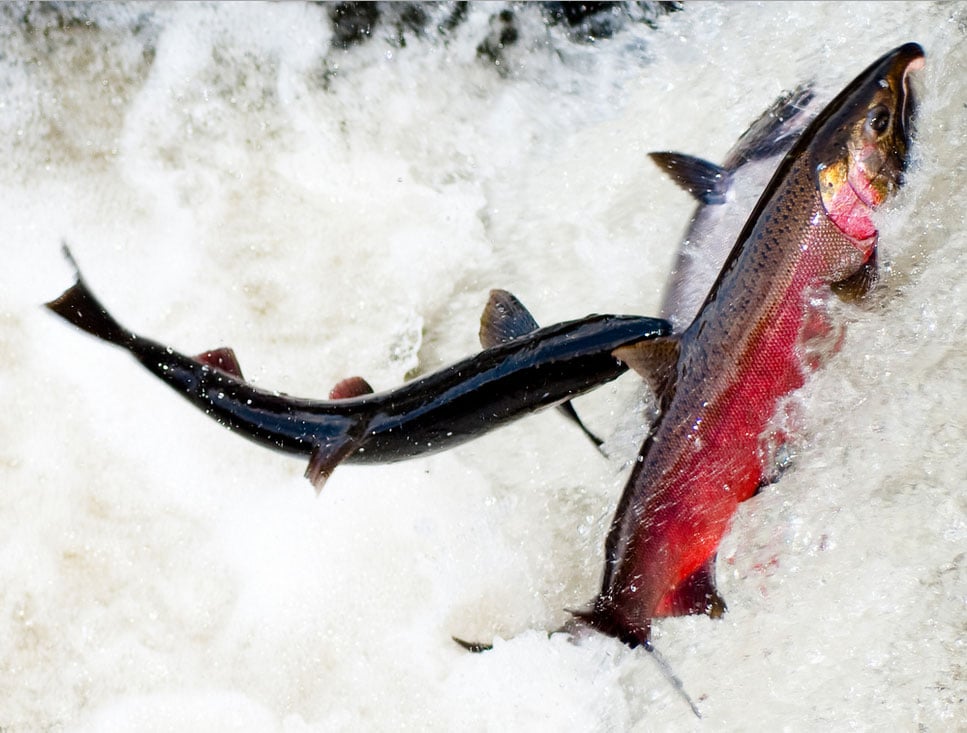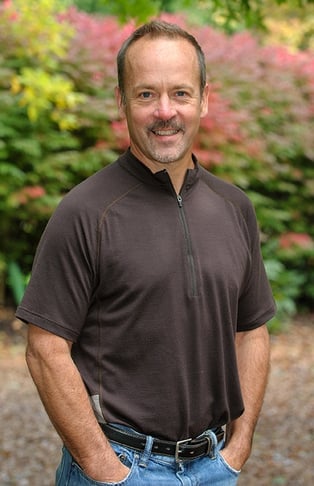Mountain Rose Herbs will double your donation to WELC in August up to $5,000!
Imagine a large, noisy, diesel-powered vacuum cleaner that sucks up gravel and sand from a riverbed, separates out precious metals, and dumps the sediment back into the stream column. Such a vacuum cleaner exists and it is being used in the rivers and streams in Oregon in search of gold. Perhaps unsurprisingly, vacuuming up the contents of a riverbed can cause significant harm to river ecosystems and aquatic species, including salmon, steelhead, and bull trout.
Suction dredge mining, a form of motorized mining, uses a diesel-powered pump mounted on a raft to suck the contents of a riverbed into a sluice where gold can be separated from gravel and sand. Placer deposits containing gold are often found in slow-moving, depositional stream reaches, which are precisely the areas where fish seek to create redds (nests) and spawn, because of the slight gradient and lower stream velocities.
To restore its runs of salmonids, California has banned suction dredge mining. Historically, in Oregon, the practice has been poorly regulated, even though many of our rivers and streams are subject to dredging. The Oregon Department of Environmental Quality reports that it recently issued more than 1,400 permits for motorized mining in the state. Here in Oregon, the Rogue, Illinois, and Umpqua river basins have been especially hard hit by this form of motorized mining.
Safeguarding Oregon’s Salmon, Steelhead Trout, and Bull Trout from Suction Dredge Mining
For years, the organization I work for, the Western Environmental Law Center, has strategized with our conservation partners to protect Oregon’s rivers and fish from motorized mining. Those efforts culminated in 2015 with the passage of Senate Bill 838 (SB 838) in the Oregon legislature, which places a five-year moratorium on mining in habitat for salmon, steelhead, and bull trout. During the moratorium period, the state will study the impacts of mining and revise its legal framework to properly regulate the activity.
But in October 2015, four mining organizations and eight miners filed suit in federal district court challenging SB 838, Bohmker v. State of Oregon. The miners asserted that SB 838 was unconstitutional and void because it conflicted with their rights to use whatever type of motorized mining methods they desired, pursuant to the 1872 Mining Act. The miners asked the court to declare that federal law preempts SB 838 and to enjoin the State of Oregon from enforcing the moratorium.
A group of conservation and commercial fishing groups asked us here at the Western Environmental Law Center to represent them to intervene to defend SB 838. We intervened in the case to defend SB 838, argued in court in February 2016, and in March 2016, we won the trial phase of the case. The miners have appealed the decision to the Ninth Circuit Court of Appeals. We will be participating in briefing the appeal this summer and fall, and likely presenting arguments on the appeal in 2017.
Our legal defense of SB 838 is very important and has the potential to set a positive legal precedent and provide enhanced protections for salmon, steelhead, and bull trout across the West. First, the case will frame and dictate in large measure whether and to what extent states and local governments can enact rules to protect natural resources from the destructive effects of hard rock mining on public lands and streams. Second, the case will be decided by the Ninth Circuit Court of Appeals, which covers eight western states, including Alaska, and thus the ruling will likely impact many state and local efforts, including, for example, restoring bull trout in Idaho and Montana. And third, the Ninth Circuit’s ruling may conflict with a different and adverse ruling from the Eighth Circuit, which is based in the Midwest. The ruling could therefore create a “conflict within the circuits,” which may ultimately engender a review by the U.S. Supreme Court that would have far-reaching implications.
As a nonprofit environmental group that receives no government funding, the Western Environmental Law Center is honored and grateful to receive the support of Mountain Rose Herbs. We could not ask for a better partner to work with and it is inspiring to know that my organization’s dedication to preserving the American West’s salmon, steelhead, and bull trout is shared in kind by Mountain Rose Herbs.
Mountain Rose Herbs will double your donation in August up to $5,000!
About the Author
Staff Attorney Pete Frost joined the Western Environmental Law Center in 1999 and for more than two decades he has litigated in federal courts to preserve the West’s wild fish, forests, rivers, and wilderness. Through legal advocacy, he has successfully reformed fish hatchery operations in the West, and helped remove barriers to fish migration to preserve and restore wild salmon and steelhead trout. In 2000, Pete received the David Brower Lifetime Achievement Award for environmental litigation. He is a graduate of Stanford University and earned his law degree at the University of Oregon School of Law.














